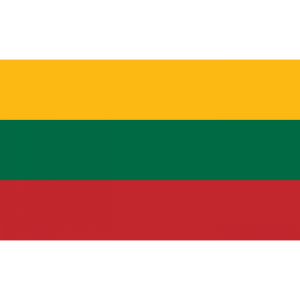Language/Lithuanian/Culture/Celebrations-and-Holidays
In this lesson, we will learn about the most important celebrations and holidays in Lithuanian culture. Lithuanians have a rich and vibrant culture, which is reflected in their many festivals and traditions.
Major Holidays and Celebrations
Easter
Easter, known as "Velykos" in Lithuanian, is a major religious holiday celebrated by Lithuanians. It is a time when families gather together to enjoy traditional foods, such as "margučiai" (hard-boiled and colored eggs) and "blynai" (pancakes).
Joninės (Midsummer Day)
Joninės, also known as Midsummer Day or Rasos Festival, is celebrated on June 24th. On this day, Lithuanians gather together in parks or public places to light bonfires and dance. Food and drinks are shared, and traditional folk songs are sung.
Kaziuko Muge (St. Casimir's Fair)
Kaziuko Muge, or St. Casimir's Fair, is the largest and most famous fair in Lithuania. It is held in Vilnius every year on March 4th. The fair features traditional Lithuanian crafts, music, and food, such as "cepelinas" (potato dumplings) and "kugelis" (potato pudding).
Užgavėnės (Shrove Tuesday)
Užgavėnės, also known as Shrove Tuesday, is a carnival-like celebration held in Lithuania in February or March. The festival marks the end of winter and the beginning of spring. People dress up in traditional masks and costumes and parade through the streets, singing, dancing, and playing instruments.
Christmas
Christmas, known as "Kalėdos" in Lithuanian, is a major holiday celebrated by both religious and secular Lithuanians. On Christmas Eve, families gather together to enjoy a traditional meal, which features meat-free dishes, such as "kūčiukai" (small cakes made of poppy seeds and wheat).
Conclusion
Lithuanians take great pride in their culture and traditions, and celebrating holidays and festivals is an important part of this. By learning about these celebrations, you will gain a deeper understanding of Lithuanian culture and its people.

